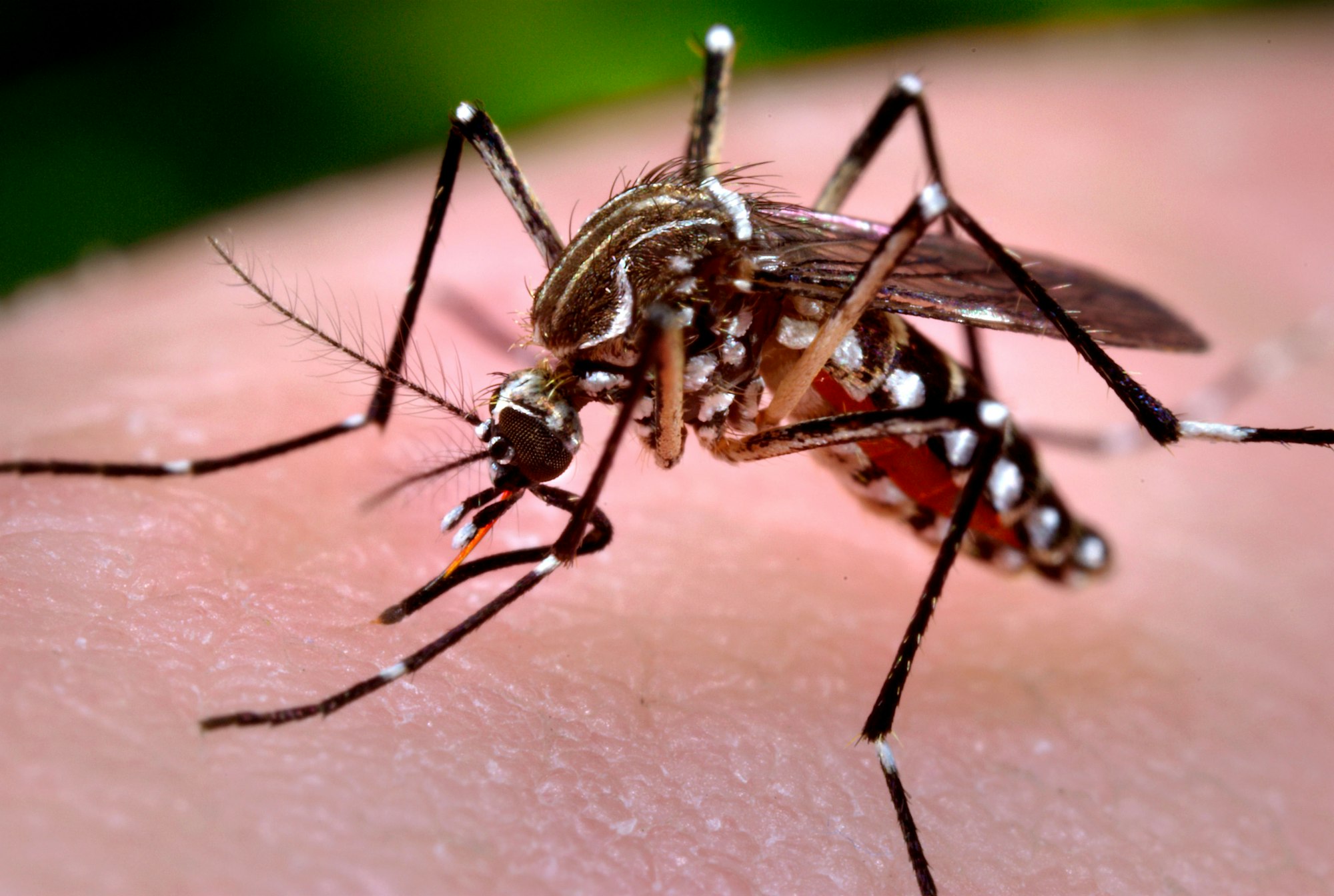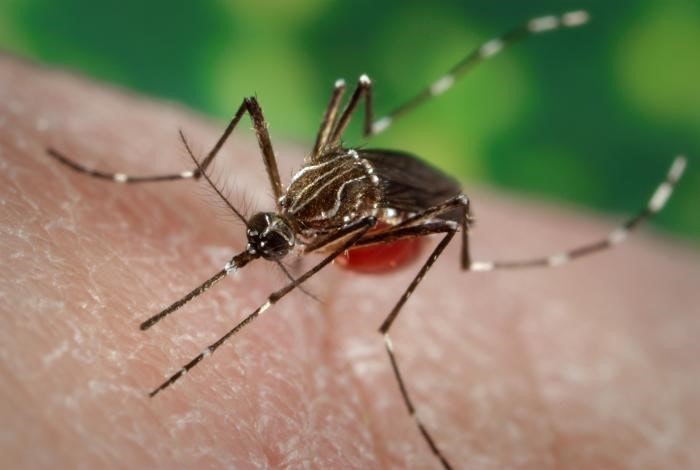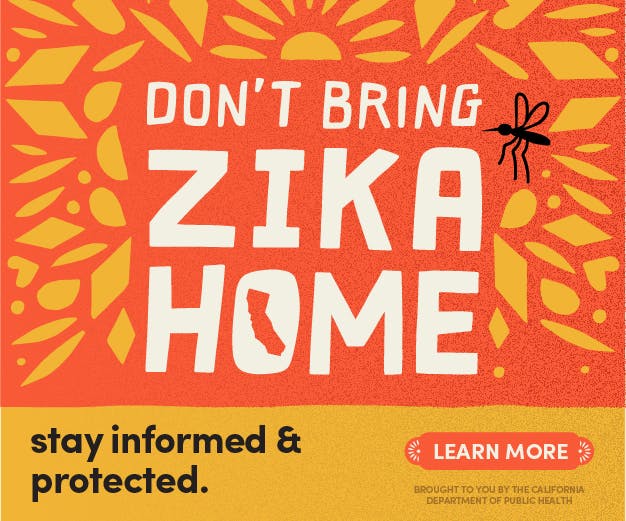Invasive Aedes Mosquitoes
Thus far, no invasive mosquitoes have been detected in Marin or Sonoma counties.

Aedes aegypti is an invasive species of mosquitoes that is not native in California. Since this mosquito was first identified in the Central Valley and Southern California in 2013, it has been spreading northward. These small black and white mosquitoes are highly adaptive and typically breed in small artificial and natural containers such as tires, bird baths, buckets, flower pots, and bromeliads. Their eggs are resistant to drying out and can lay dormant for a long time before being flooded with water and emerging, often making it difficult to control the populations. Adults prefer to feed on humans, and can be aggressive daytime biters.
Physical characteristics:
- Small (1/8 – ¼ inch in length)
- Black and white body
- Black legs with white stripes
- Lyre-shaped marking on thorax (distinctive to this species)

Aedes albopictus is another invasive species of mosquito that has become established in California. Similar to other invasive Aedes mosquitoes, Ae. albopictus is a small black and white mosquito that lays desiccation-resistant eggs on the sides of both artificial and natural containers.
Physical characteristics:
- Small (1/8 to ¼ inch in length)
- Black and white body
- Black legs with white stripes
- Striking white stripe down thorax
Human health impact
Both Aedes aegypti and Aedes albopictus have the potential to transmit several human viruses, including dengue, chikungunya, Zika and yellow fever. They are also both considered nuisance species as they are aggressive daytime biters, feeding both indoors and outdoors.
How to prevent invasive Aedes breeding sites
















Scroll through the gallery to view invasive mosquitoes and the places they like to lay their eggs.
Remove artificial containers – Remove any unnecessary water-holding containers from your property.
Dump standing water – The eggs of invasive Aedes mosquitoes can survive for long periods of time on the side of containers, waiting for the containers to fill with water. Invasive Aedes can develop from egg to adult mosquito in 7-10 days in the right conditions, so dumping water each week will prevent the adults from emerging.
Contact the Marin/Sonoma Mosquito and Vector Control District (707) 285-2200 if you are noticing mosquitoes and would like a technician to come inspect your property and look for potential sources.
Additional information:
Interactive Map of Invasive Aedes Mosquito Detections in California
California Department of Public Health Invasive Aedes Webpage

